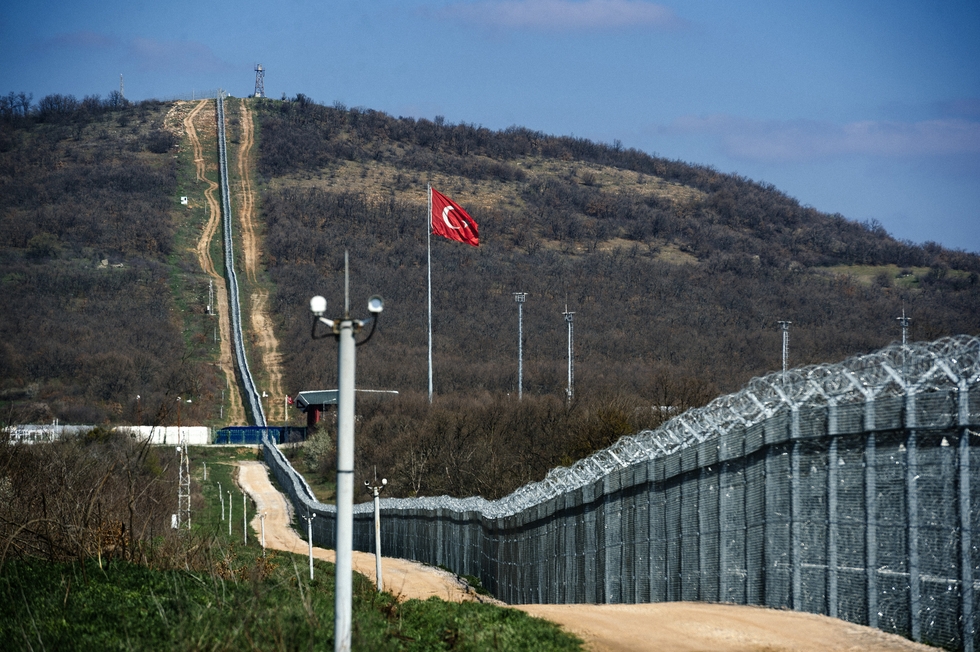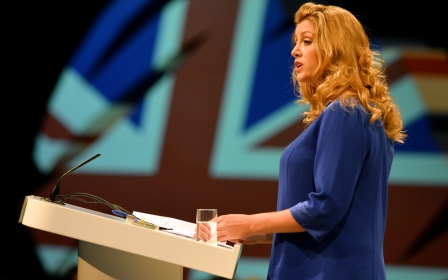EU and Turkish leaders need courage to turn the tide of right-wing populism

"It is not remotely on the cards that Turkey is going to join the EU any time soon. They applied in 1987. At the current rate of progress they will probably get around to joining in about the year 3000 according to the latest forecasts."
The abovementioned remarks are nothing new with regard to the story of Turkey and the European Union (EU). In different ways and contexts, such statements are repeatedly uttered by both Turkey and the EU. What makes them interesting is that, this time, they are voiced by the prime minister of Britain, a country that overtly supports Turkey’s membership bid and is to face a referendum in two weeks for a possible exit from the union. In fact, even this is enough to see the EU’s confusion of mind.
For Turkey, its application for membership of the EU has simply become a part of a very long process, during which time the union has lost the allure it once held for its eastern neighbour. Turkey’s hope of joining the EU now has a similar status to her current memberships of many international and European institutions and unions.
In short, the significance, weight and multiplier effect attached to Turkey’s EU accession in the past millennium has considerably changed with the global and regional geopolitical developments since 2000. Nevertheless, Turkey's desire to become a member is not only a strategic goal but also a critical leverage for Turkey's economy and foreign policy.
For the EU, Turkey’s membership has the potential to be the most positive and existentially significant political decision since the establishment of the union. Considering the EU's political stalemate, identity issues and Europe's economic recession, it is obvious that Turkey’s accession to the EU will have a direct impact on all equilibria in Europe. This impact is very likely to be positive rather than negative. The issue is whether or not Europe will be able to grasp this without losing its bearings.
The EU and Turkey maintain a uniquely multi-dynamic relationship. The Turkey factor is vital for the EU especially in terms of demography, paralysed European politics, regional geopolitics, identity issues and its economy. These dynamics offer opportunities rather than pose threats, and understanding this requires the adoption of a constructive political perspective.
Currently, Europe is under the influence of the rightist political current which gets stronger every day. Turkey, on the other side, is under pressure from the regional geopolitical crises; so, both need to make their political decisions courageously, and this will help set up a win-win equation.
Rising right-wing populism in Europe has given way to the most controversial political axis, which first emerged in the 1970s in Western Europe and extended to Eastern European countries in the 1990s.
Although political parties and administrations adopted democracy as their main principle, since the 2000s they were attracted to populist currents which raised their objections to issues involving the EU, such as immigration, refugees and Islam. Members and affiliates of such parties which have advocated a social order based on a national culture of the “Christian West” are generally nurtured by xenophobia and Islamophobia.
In the post-9/11 period, rightist populist trends have emerged with the exploitation of the public fear of terrorism and social reflexes as a result of political discourse and actions that have developed against Islam and Muslims.
Such trends have increased exponentially since 2010; consequently, in many countries, political parties, such as the Alternative for Germany (AfD), the Party for Freedom (PVV) in the Netherlands, the Hungarian Civic Alliance (Fidesz), the Freedom Party of Austria (FPO), and the National Front in France have acquired substantial momentum.
Trends and parties, and some movements such as PEGIDA in Germany, nourished by the refugee crises and terror attacks, have led to social polarisation against foreigners, Muslims in particular.
The EU will be influenced less by the on-going political turbulence if it exhibits a strong political will to stand against the provocations of right-wing populism. At this very point, Turkey’s membership is the most critical initiative for the EU and is not only necessary in terms of the zeitgeist but also in terms of real political and geopolitical considerations.
We do not know what the outcome of the referendum on 23 June 2016 in Britain will be. Irrespective of the result however, the referendum has the potential to lead to a more controversial vision of the EU.
In such a critical period, the EU could take a constructive step together with Turkey and find its way through the immediate political turbulence.
If the EU wishes to cool down the hot breeze of June – blowing from both Turkey and the UK - then it should navigate a way out of both rightist populism and unproductive populism of the left. Turkey may present this very opportunity to the EU.
- Taha Ozhan is a member of Turkish Parliament and chairman of Foreign Affairs Committee. He is an academic and writer. Ozhan holds a PhD in Politics and International Relations. He frequently comments and writes for international media. His latest book is Turkey and the Crisis of the Sykes-Picot Order (2015). You can follow him on Twitter @TahaOzhan
The views expressed in this article belong to the author and do not necessarily reflect the editorial policy of Middle East Eye.
Photo: A Turkish flag flying over the barbed-wire fence of the Bulgarian-Turkish border near the Bulgarian village of Lesovo, on 17 March, 2016 (AFP).
New MEE newsletter: Jerusalem Dispatch
Sign up to get the latest insights and analysis on Israel-Palestine, alongside Turkey Unpacked and other MEE newsletters
Middle East Eye delivers independent and unrivalled coverage and analysis of the Middle East, North Africa and beyond. To learn more about republishing this content and the associated fees, please fill out this form. More about MEE can be found here.





